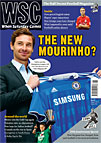{youtube}zR1F7RzFdGI{/youtube}
 There are problems with the Brandywell but, as Aidan Bonner explains, Derry City’s frustrating search for a new stadium continues
There are problems with the Brandywell but, as Aidan Bonner explains, Derry City’s frustrating search for a new stadium continues
Derry City are a club that is neither here nor there. Located in Northern Ireland but competing in the Republic, they have often found themselves caught between two worlds. Based in the Irish FA’s jurisdiction, the club were forced to leave the Irish League as the political situation and sectarian tensions worsened around them. After kicking around junior leagues for 13 years, Derry eventually re-emerged in the Republic of Ireland’s national league in 1985. This bout of border-hopping can still cause the club problems from time to time.
Drowned by a saga of double contracts and financial mismanagement in 2009, Derry City returned as a new, debt-free entity last season. Although the new DCFC were initially left to explore the delights of the lower of Ireland’s two senior leagues (dubbed the “Discover Ireland” division by fans) their budget still outstripped many of their rivals and they were promoted at the first time of asking. Back in the Premier Division, things are going swimmingly. But many fans have long viewed the club’s Brandywell home as being in a location that discourages potential new supporters.
Situated in the heart of what was once the predominantly nationalist “Free Derry” district – a no-go area for the RUC at the time – the ground remains unpoliced, with the club relying on the services of a dedicated band of stewards. This arrangement has been largely successful but can still prove problematic on occasion, as potential flash-point fixtures with the big Dublin clubs have recently shown.
Health and Safety officials reduced the Brandywell’s capacity by 700 this year. With the ground’s slightly dilapidated state, the promise of one new 2,500-seat stand does little to satisfy supporters, many of whom would prefer a more permanent move to either the vacant Templemore or Fort George sites in the city. The Fort George site is in the hands of Ilex, the company set up to take charge of the regeneration of the city, who have yet to engage DCFC.
Proposals and projects are nothing new to City supporters. In mid-2006, the club unveiled plans for a new £15 million complex to be built on the site at the Brandywell, complete with 6,000-seat ground, synthetic 3G pitches and retail development. This bid fell apart and the eventual demise and rebirth of Derry City brought them back to square one – a “new” club with an old ground, hoping to be gifted what they cannot afford to build.
But who is going to hand them anything? The Maze Stadium project was an ambitious plan to build an all-encompassing home for Northern Irish sport which collapsed. Instead, the money set aside for this plan has been dispersed to football, rugby and GAA clubs around the country. The cost for the proposed new stand at Derry is to be drawn from this funding, but that alone would be a poor return.
Derry City officials have watched as new stadium projects for clubs such as Crusaders began at great pace. In fact, across the town work is nearing completion on major improvements to the home ground of Institute, Derry’s Drumahoe-based Irish League neighbours. Meanwhile, just over the border in Donegal, a new 6,800-seat home for Finn Harps has been given the green light. For Derry supporters, seeing the door to 21st century facilities opened to a host of “smaller” clubs has raised serious questions.
The belief that Derry City playing across the border could harm their chances of receiving funding from the Northern Irish executive grew to the extent that in 2008 local MLA Raymond McCartney challenged Gregory Campbell, the minister for culture, arts and leisure, to acknowledge publicly that the club’s cross-border status would not be an issue. Recently, however, the lack of progress has mostly been blamed on the apathy of local politicians and the failure of club officials to apply any pressure.
For the time being, as the city council, rather than the club, own the ground, they must apply for funding and also have the final say on any proposed improvements. The suggested changes are unlikely to attract new supporters or to appease those already there. On the positive side, all signs indicate that money may be available for the right project, with the right pitch. The drawback is that this may be a brief opportunity for clubs seeking funding, and that local officials seem content to sit on their hands and let it drift by.
From WSC 294 August 2011
{youtube}cRwalxQIkuw{/youtube}
{youtube}xJBsI7RAuvk{/youtube}
{youtube}PQ26T1Ws73E{/youtube}